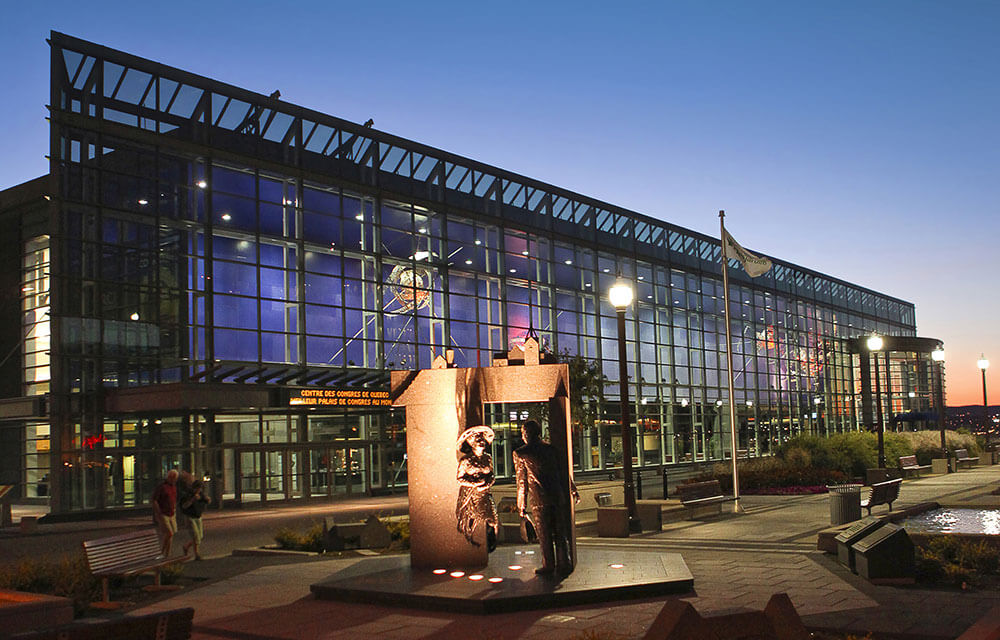
The Québec City Convention Centre is the first in Canada to implement a comprehensive event eco-responsibility programme for planners. (Québec City Convention Centre)
Hundreds of thousands of attendees pass through cities for events every year, and convention centres are now becoming leaders in terms of sustainability. Minimizing the environmental footprint a meeting has on a destination is at the forefront of the planning process, but now cities — and convention centres — are going even further to foster community development, promote local culture, and leave a lasting legacy.
The Québec City Convention Centre is the first in Canada to implement a comprehensive event eco-responsibility programme for planners, which incorporates sustainable services, such as bulk dispensers for milk and sugar, wooden coffee stirrers, local ingredients, and the sorting of compostable kitchen waste. More than 85 percent of the disposable cutlery, containers, and dishes are compostable, and the need for plastic water bottles is eliminated, thanks to filtered water fountains, which are connected to the Québec City system.
“Our vision of a greener future has really led us to pave the way and take novel approaches,” Québec City Convention Centre’s president and CEO Pierre-Michel Bouchard said in a recent release. “It’s more than being good to the environment — it’s about being a good corporate citizen. That’s why we work with partners to create charity events like Cuisinez au suivant, a chef-prepared free meal for 500 people from disadvantaged backgrounds in the Québec City area.”
In addition to Cuisinez au suivant, the centre also partners with adopt-a-habitat protection programme Fondation de la faune du Québec; Carbone boréal, a greenhouse gas offset programme that promotes tree planting; and Planétair, which helps neutralize climate impact through carbon-offset solutions. Through measures like high recycling rates (where at least 80 percent of materials must be compostable), the centre not only preaches what it promotes in terms of sustainability, it also received the credentials to prove it: the Level 1 criteria of BNQ Standard 9700-253, Sustainable Development – Responsible Event Management.
Certificates like the LEED Canada-CI Gold Level are one way to show signs of environmentally friendly venues and event services, but another that’s more visible is community-building initiatives (such as 3 Things for Canada) and surplus food donation to local charities or organisations. The centre, for example, has contributed more than 3,000 kg of food that would have otherwise gone to waste.
By putting an eco-responsibility programme in place and assembling a staff that is educated on the standards of environmental management, convention centres can show planners and associations that they can host a sustainable event from start to finish — and offer the infrastructure to make it happen.
